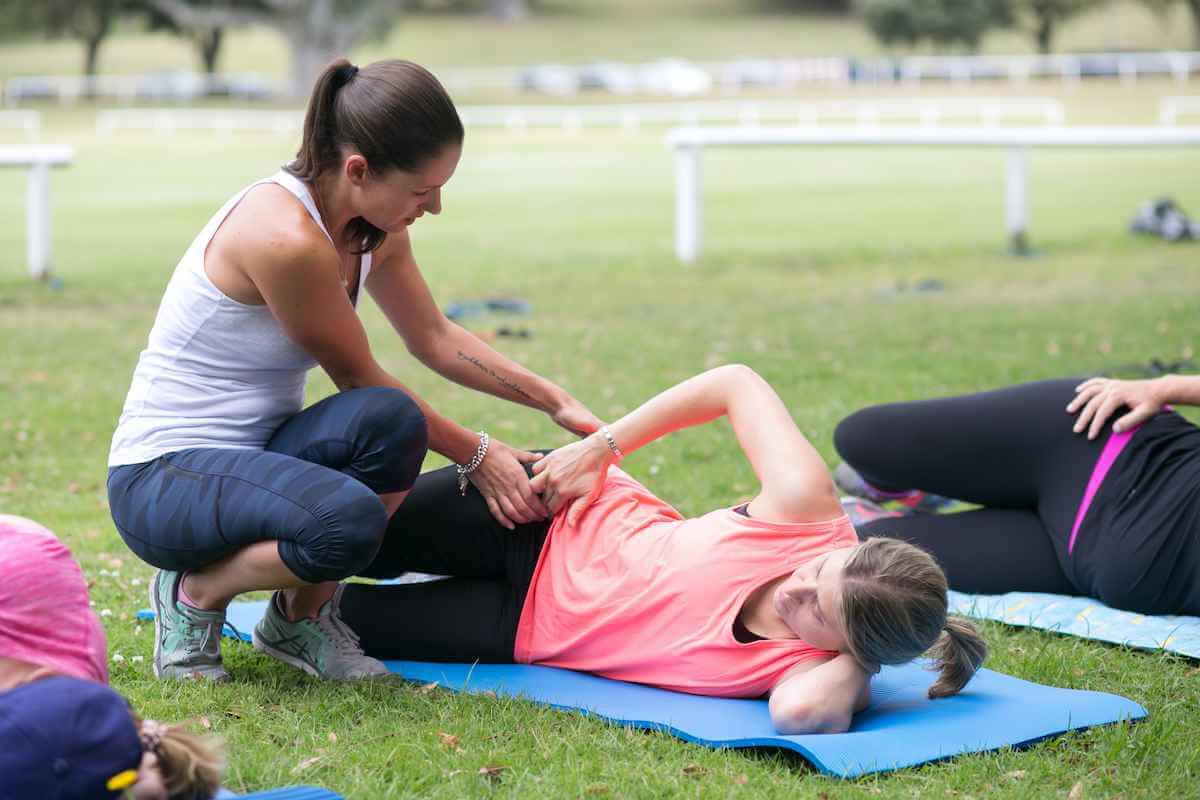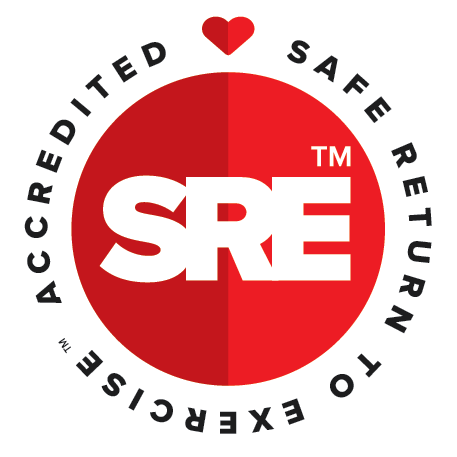The top 5 things your PT should do when you return to training as a new mum

Postpartum return to exercise as a new mum can be a minefield
Most women sit in one of two camps: those that are ‘blissfully unaware’, that don’t know what they don’t know and don’t even know to look for what they don’t know OR those that have an idea of what they don’t know and have taken to Google to search up ALL of the things – which potentially leaves them even more confused than when they started.
I’d like to create the understanding that this is not about laying ‘blame’
Many women will also turn to the ‘experts’ for help to do the right thing not knowing that many Fitness Professionals also ‘don’t know what they don’t know’: the Personal Trainers, Pilates and Yoga teachers all of whom are also doing the best job they can with the best information they have.
Awareness around this subject we can help raise our fitness industry
Before we go any further, I’d like to create the understanding that this is not about laying ‘blame’. Personally, I don’t do blame or pass judgment on what others are doing. However, I do think that with more awareness around this subject we can help to raise our fitness industry to a higher standard. We can also educate more and more women to understand what they are looking for in a trainer at every stage of their life therefore giving her the confidence and autonomy to choose what and who is right for her to work with.
So, if you are a new mum and you are looking for a Fitness Professional to work with postnatally, here are my top five tips on the questions they should ask you and the things they should do before you start training. This will be a dead giveaway in understanding their knowledge and experience in this area.
- They will complete a thorough Pre-exercise Questionnaire – There are very few trainers or teachers that won’t do a pre-exercise or medical questionnaire with you (if they don’t do it at all run a mile!) and when they do, pay attention to these essential new-mum questions:
- What kind of delivery did you have? (vaginal or c-section)
- How long were you pushing for? (vaginal delivery)
- Do you have any tearing or an episiotomy? (vaginal delivery)
- Was it emergency or planned? (c-section)
Hot tip: these are the bare minimum postnatal questions they should ask you. If they simply ask: “Have you had your six-week check-up?” and “Do you feel OK?” you might consider they don’t know as much as you might like them to about working with postnatal women.
- They will check you for abdominal separation – Understanding where your body is right now is essential both for you to move forward and for your trainer to understand how to look after you. Although it is not in a trainer’s scope of practice to diagnose anything, they can gain an idea of both abdominal separation and abdominal control. If they are doing this with you AND offering you some guidelines about what it means, and exercises to do and to avoid, they have most likely studied further in this space.
Hot tip: if they talk to you about width as well as depth, they are more clued up than many!
- They will teach you about pelvic floor and let you know that it is an internal muscle – Understanding your pelvic floor after having a baby is super important. A trainer that has learned more in this space should be able to guide you in ‘finding’ this muscle. They may place their fingers or thumbs just inside your hip bones when they teach you which can offer both them and you some feedback on what you are doing. But, it’s important to note that the muscle they are feeling here is your Transversus Abdominis, NOT your pelvic floor. Your pelvic floor is an internal muscle and no matter how good a trainer they might be they can’t see or feel you pelvic floor to give you complete feedback.
Hot tip: if they also mention the importance of relaxing your pelvic floor as well as contracting it, you may have found a great one!
- They will suggest it’s a great idea to see a Women’s Health Physiotherapist (WHP) for a postnatal screening – A trainer or coach that is clued up in this area understands that your pelvic floor is an internal muscle and so they cannot give you proper feedback on your contraction, strength, endurance or if you might have a prolapse. They know that they need a strong partnership and that their WHP are their ‘eyes on the inside’. If they refer you to a WHP, whether you are symptomatic or not, my advice is to go! It’s best to understand your body from the inside out and your trainer will be able to give you more in-depth exercise guidance if they understand too.
Hot tip: it’s reported that 50% of women push out through their pelvic floor when they perform their exercises after reading how to do them in a brochure or gain verbal instructions. You may not know you are doing this for sure until you see a WHP.
- They will help you to understand you are so much more than how your body looks – This is so often overlooked when attention is on the physical. A trainer that is experienced and understands working with mums will help you to see how wonderful your body is in all its phases and stages. They will help you to shift your focus away from the quest to ‘get your body back’ and assist you in understanding your body, becoming educated in the best steps to re-build from the inside out and helping you to move forward in a way that empowers you and helps you to love your body. Never underestimate the power education and understanding offers a woman!
Hot tip: you ARE amazing! Your body has grown and birthed a human! Working with an understanding and switched-on trainer at this time can really make a difference in overcoming negative thoughts about your body and beating it up through under-eating and over-exercising. A supportive coach at this time could literally change your life!
Oh, and don’t forget to ask them what qualifications they hold. It is a requirement of most insurance companies that trainers and instructors hold the correct accreditations for them to be covered by their insurance when working with special populations.
It is a requirement of most insurance companies that trainers and instructors hold the correct accreditations.
So, if you have had your 6-week check-up and you are on the hunt for a Fitness Professional to work with you are now equipped with a little more insight into who you might choose to work with at this time. And know that it is absolutely OK to find a new trainer if the one you have previously worked with doesn’t have these skills – a great trainer understands their scope of practice and has only your best interest at heart. They know you will return to them if and when the time is right again.
If you are a new mum returning to exercise and are not sure where to start check out our FREE Safe Return to Exercise for New Mums program to learn all you need to know.
Mum-focused author, educator and business owner, Jen Dugard is on a mission to ensure every woman is safely and effectively looked after when she becomes a mother. She is a highly qualified trainer and fitness professional educator and has been specialising in working with mums for over a decade. MumSafe is the go-to place online for women to find mum-focused fitness services that are all accredited, experienced and partnered with women’s health physios so you know you are in very safe hands.
